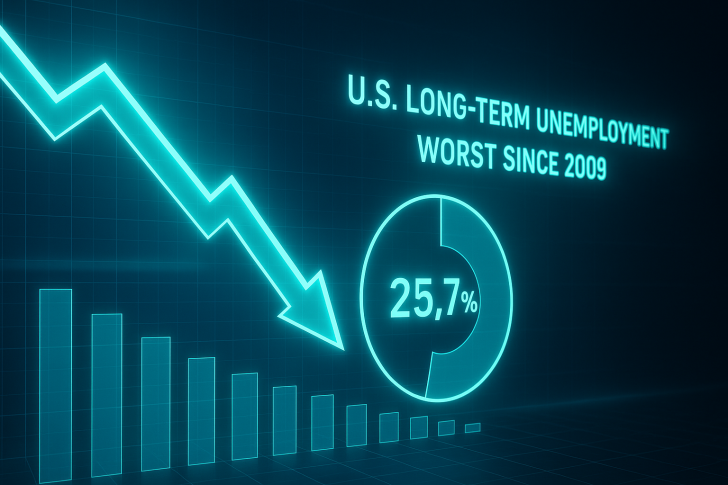● Financial analysis platform Stock Sharks recently highlighted a worrying trend: long-term unemployment has climbed to 25.7%. That means one in four people without jobs have been searching for more than 27 weeks — the worst figure since the 2009 financial crisis.
● This doesn't square with the "strong job market" narrative we keep hearing. Sure, the official unemployment rate sits at 4.35%, but that headline number hides a harder reality. Many workers can't land new jobs even though the economy looks decent on paper. As Stock Sharks put it: "Do you really believe the 4.35% unemployment rate they report today?"
● The consequences matter. Long unemployment stretches drain savings, rust skills, and crush confidence. It threatens families and pushes people out of the workforce entirely. If this continues, economists worry it'll hit consumer spending — which powers about two-thirds of the U.S. economy — and widen the gap between haves and have-nots.
● For policymakers, this surge is a red flag. The Fed's higher interest rates, meant to fight inflation, may be cooling hiring in industries like manufacturing, construction, and retail. There's growing pressure to shift toward policies that actually create jobs and retrain workers, rather than just tightening the money supply.
 Eseandre Mordi
Eseandre Mordi

 Eseandre Mordi
Eseandre Mordi


